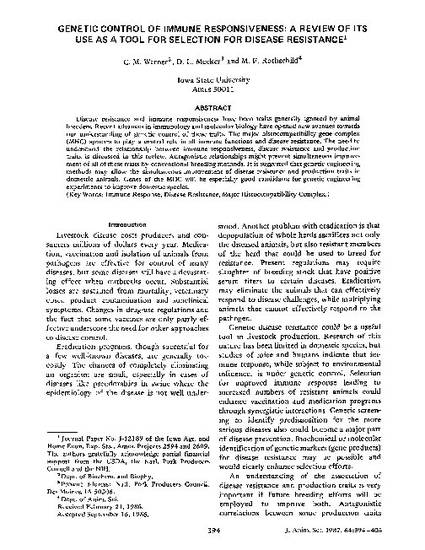
Disease resistance and immune responsiveness have been traits generally ignored by animal breeders. Recent advances in immunology and molecular biology have opened new avenues towards our understanding of genetic control of these traits. The major histocompatibility gene complex (MHC) appears to play a central role in all immune functions and disease resistance. The need to understand the relationship between immune responsiveness, disease resistance and production traits is discussed in this review. Antagonistic relationships might prevent simultaneous improvement of all of these traits by conventional breeding methods. It is suggested that genetic engineering methods may allow the simultaneous improvement of disease resistance and production traits in domestic animals. Genes of the MHC will be especially good candidates for genetic engineering experiments to improve domestic species.
Available at: http://works.bepress.com/max-rothschild/51/

This is an article from Journal of Animal Science 64 (1987): 394, doi:10.2134/jas1987.642394x. Posted with permission.